|
Walking into the endzone of FedEx Field of the Washington Football Team made everything feel real—not some fantasy about playing professional football, but the reality of graduating college and entering into a new stage in life. In the middle of May, I graduated from The Catholic University of America at FedEx Field. It was an experience filled with much joy, but also some uncertainty. The joy and happiness were palpable throughout the stadium. It was rewarding seeing four long, hard years of work and late nights come to fruition. I felt a happy sense of relief that we had made it through the chaos and craziness of the past three semesters amidst the pandemic. It was exciting getting to celebrate with our friends and family—a truly special ceremony. Later that day, I began to feel some uncertainty mixed in with my joy. Friends were moving back home or across the country. Some friends were starting new jobs while others were going to graduate school. Some friends were younger and would still be at school another year while other friends had full-time jobs. There was a lot still up in the air. Over the past couple of weeks since graduation, I have reflected on that uncertainty and realized that it relates to a lot going on today. There’s uncertainty in starting a new job, in moving, or any type of new beginning. There’s uncertainty in returning to work in person maybe for the first time in a long time. There’s even uncertainty about traveling and going on vacations with differing restrictions. As I reflected on the uncertainty I felt from graduating college, I was comforted by one simple fact: the same Jesus who was present and working in my life before will be present throughout the uncertainty. During the Nicene Creed, we say, “I believe in one, holy, catholic and apostolic Church.” In these four marks of the Church, catholic is referring to the universality of the Church. This is what I found comfort in. Even though I wouldn’t be going to Mass at Catholic University anymore, Jesus would be present at Mass at my new parish community. Even though I wouldn’t have the ability to go to a chapel as frequently, Jesus would still hear my prayers throughout my workday. I found this realization comforting and encouraging – I knew Jesus would be present throughout the uncertainty and the change. I began to think of ways that I could actively embrace the uncertainty by welcoming Jesus into the small day-to-day actions that I knew would come about because of the changes. I set two goals for this uncertain time:
0 Comments
“Why are you standing there?” The angels who spoke these words to the astounded disciples now turn to ask us this question today. Perhaps, like the disciples after the Ascension, we too have been stuck looking up at the sky, wondering where Christ is. Our answers to the angels’ question are probably very legitimate. “I am standing here because of the pandemic, because I lost my job, because of isolation, because of sickness, because of racial discord, because of people’s differences, because I don’t know what else to do.” In this passage from today’s Gospel reading, which is the same as this upcoming Sunday’s, I remind myself that at least the disciples were looking up. They at least had their eyes fixed on Christ. That, in and of itself, is a good thing. But what God wants to convey through the angels after Jesus’ Ascension is that just seeing Christ or believing in him is not enough. A relationship with Christ results not in paralysis, but in action. “You will be my witnesses,” Jesus tells his disciples moments before he ascends to the Father. And it is by living out our relationship with Christ as witnesses that the world comes to know him and that our faith comes alive. Witnessing to our faith and accompanying others on their faith journeys shake us out of our paralysis and help us overcome our fear. Jesus is not conveying that hardship, suffering, or unrest will be absent from our lives, but that these no longer have the power to paralyze and trap us. His Resurrection has changed the narrative. And as the Easter season comes to a close, Jesus is calling us not only to believe in him, but to act— to have our lives transformed by the knowledge of the Resurrection and to live boldly and faithfully as a result. At this point, however, the disciples are still focused on earthly things. Just before Jesus’ Ascension, they ask him, “Lord, are you at this time going to restore the kingdom to Israel?” Many of us have similar questions. “Lord, at this time will I get my job promotion? As this time, will my addiction be healed? At this time, will the pandemic end? At this time, will our family be reconciled?” These are valid, important questions of the human heart. Questions that long for answers, for resolutions, for miracles. Jesus’ response seems mystifying and even unrelated: “You will receive power when the Holy Spirit comes upon you, and you will be my witnesses.” While the disciples are still caught focusing on the restoration of Israel and victory over their oppressors, Christ promises more. So much more, in fact, that they are unable to grasp it without the gift of the Holy Spirit, whose coming we celebrate on the Feast of Pentecost on May 23rd. It is why Jesus chose to ascend at this time. He had spent 40 days teaching and opening the Scriptures to his disciples after his Resurrection, but they still could only fathom human goals and objectives. Jesus knows his ministry has come to an end and that a new chapter of the Church will begin with the promised Advocate, the Holy Spirit. After he answers them, Jesus compels his disciples to look up to the heavens as he begins to ascend to the Father. He is physically showing them the needed disposition of their hearts and minds in order to receive the Holy Spirit: they should be considering heavenly things and a heavenly goal. But then, moments later, they are startled to hear: “Why are you standing there looking at the sky?” It can be tempting at times to separate ourselves from the reality of the here and now by over-spiritualizing things or being preoccupied with the past or future. The disciples are left looking up (very understandably), but this looking up and clinging to Jesus in his physical form distracts them from the action to which he has called and chosen them: to be his witnesses to the ends of the earth. This balance between living in the world but not of it can be difficult to grasp and practice. It’s important first to consider where you find yourself today. Are you asking the Lord to restore the kingdom to Israel? Are you standing looking at the sky? Many of us are somewhere in between. Below are 6 practices that help ground me in Christ and deepen my ability to witness to his love:
By considering these practices, it is my hope that, renewed by the Holy Spirit at Pentecost, we will enter into Ordinary Time ready to be Christ’s witnesses to the ends of the earth. Christ calls us each to so much more than simply remain standing. For more resources on living as missionary disciples, please click here. As the mother of a young toddler, I’ve found that life is moving pretty quickly. One moment I’m running after him so he doesn’t grab the dog’s water bowl, and the next, I’m reading his little children’s Bible for the third time in 5 minutes. I’m finding that my toddler is learning so much from his environment. Every day, he can say new words or hum or sing or dance. When I hear him say, “Mama and Vinny,” I just stop and think about Mary.
I love to imagine her as Jesus’ mother: patient and loving, giving hugs, teaching him and walking among flowers. I picture the two of them laughing and playing in the sunshine filled with joy. But I also imagine her with Jesus throughout his life. I start by thinking of Jesus as a toddler--maybe when they were still in Egypt. He likely picked up sand and tried to eat it like my little one would or looked at a camel or water and began to say his first words. Then, I can imagine Mary and Joseph both searching for Jesus while he was not where they thought he should be, but instead in the Temple with teachers showing how much he knew about Scripture. She would be proud of him and his knowledge, maybe with a pang of understanding of his purpose on earth. Then I imagine later on in his first miracle at the wedding at Cana, when she really knew it was time for Jesus to begin his ministry. She supported her son, but also knew it was time to begin God’s work. Meditating on different Scripture passages and moments in the life of Christ can deepen our relationship not only with him, but with the many powerful witnesses to the faith like Our Blessed Mother. Reflecting on moments with my toddler and my own motherhood has strengthened my relationship with Mary over this past year. In this month of May, let us turn to Christ’s Mother and celebrate her motherhood to all of us. Mense Maio, an encyclical by Pope Paul VI which came out on April 29th, 1965 discusses prayer during May for the preservation of peace and the powerful intercession of our Blessed Mother in a variety of ways. As I was reading, I liked how Pope Paul VI mentioned different areas that need our prayers. In the twelfth section of the document called “Plea for Mary’s Help,” he writes, “she graciously lend(s) an ear to the devout pleas of those all over the world who beg her for peace.” As we begin the Marian month of May, let us think about the people in our lives, maybe those marginalized or neglected who are in desperate need for our prayers and petitions. Let us turn to Our Blessed Mother and beg her for peace in our lives and throughout the world. To read more blog posts about the Blessed Virgin Mary, please click here. I felt for my husband. He had just hung up the phone with a family member, letting him know that we would not be attending a birthday party. “That was so uncomfortable,” he said, “I can tell I hurt his feelings.” The party would be fun, but jam-packed with people and a risk for our family that we were not yet ready for in COVID times. I can relate to the discomfort. It had only been a week since a friend declined an invitation to dinner on our patio, citing the very same reasons that we had just offered to our family member: they weren’t ready. Receiving her text, however gracious it was, made me feel like she believed us to be dirty, reckless, and wrong in our choices. It is a situation we find ourselves in time and again: assessing risk and making decisions that bear the weight of our mental and physical health, all the while revealing a supposed worldview and delivering a perceived judgement. At best, these decisions and conversations are the source of relational aches. At worst, they create genuine conflict and damaged friendships where hurt hearts struggle to heal. The rapid sequence of these interactions and the rate at which they seem to be occurring has given me pause. Each time, I worry about the repercussions of choosing not to attend an event at which I would be wearing a mask while no one else is--will my friends feel judged by me? Am I hurting them? How do I balance that with the decisions my husband and I have intentionally made for our family? Then, what do I do with the pain when friends and loved ones choose not to be around me? What do I let that say about who I am, and how they feel about me? Most importantly, how do I honor my role as a disciple of Jesus in each of these interactions? As I try to remember to do with all things, I sought the answer to these questions by looking to Jesus. God’s Word, living and active, has plenty to say about navigating these complex moments. Be merciful, just as your father is merciful. Luke 6:36 When I live wrongly, am uncharitable in my words or actions, or neglect to walk in faith, the Lord extends his mercy to me. I am reminded here that when I feel hurt by the manner in which an invitation is declined or I cannot see eye to eye with a loved one, that I am called to react with mercy. It is likely that I do not know the intricacies of the other persons’ thoughts and feelings around pandemic living. I don’t know the details of their story. I do know that I am commanded to love my neighbors, even if they are making different choices from me. Search me, oh God, and know my heart! Try me and know my thoughts. See if there be any grievous way in me, and lead me in the way everlasting. Psalm 139:23-24 I feel heat rise up in me when I interact with someone who is living differently from my family, even though I know it shouldn’t. I bear the responsibility of investigating the rise in tension that I feel, and bringing it before Jesus. I consider whether I am seeking validation in my choices from those around me or from God. I reflect on where my worth and acceptance come from, and if a change needs to be made. An assessment of my words and actions allows me to remain in truth, confess my sin, and love more like Jesus. He said to them, “These are my words which I spoke to you while I was still with you,” [...] Then he opened their minds to understand the scripture. Luke 24:44-45 Jesus spoke these words to his disciples upon seeing them for the first time after his Resurrection. Surely, in their humanity, they believed they understood the permanency of death and needed no additional data. Still, their minds were opened, they took on new information, and their beliefs changed. When I humble myself to hear thoughts and ideas that challenge what I believe and prove me under-informed, I grow. Allowing myself to be open to the possibility that the person with whom I’m in conflict with might have something to teach me allows me to love them well and avoid pridefulness. Come to Me, all who are weary and burdened, and I will give you rest. Matthew 11:28 This has been an exceptionally tiresome period of life. My mind feels perpetually in high alert, my kids go from in-person schooling to virtual learning, and back again. The world feels at odds. When I’m exhausted, it’s hard to bring my best self to my friends and family, to introspection, and to take on more and challenging information. Some days I’m barely getting by. It’s why it has become essential for me to find rest in the Father. The more time I spend in prayer, in the Word, and participating in the sacraments, the greater my bandwidth will be to face the difficult interactions that will surely arise. I turn to my husband and we walk through what God has laid out for us here. In charity and humility, we work to accept that what is right for our family is likely different for the families around us. We are affirmed in who God says we are, and we rest in that. And when we are faced with this situation again next week or the week after, we will do our best to remember these truths. We will try, in this and in all things, to love like Jesus. For more resources to grow spiritually during the COVID-19 pandemic, please click here.
Spring is such a beautiful season and is usually filled with many engagements and weddings after Easter. Thinking of my own time of engagement, I remember everything seemed like a whirlwind! Our engagement was about 11 months long, and we were certainly appreciative of the planning time we had in going through marriage preparation without rushing.
Thankfully, my husband and I were both on the same page when it came to getting married in the Catholic Church. Prior to our engagement, we had already discussed wedding budget expectations, length of engagement, and a wedding location. I was grateful we had these conversations so early. As my husband, friends, and family can all attest to, I am a planner. To no one’s surprise, I set up an appointment the day after our engagement to meet with our church to begin our marriage preparation process. (Of course, it could have been from my excitement as well!) We learned SO much throughout our marriage preparation process. Hopefully we can share some helpful thoughts with those who are currently planning or will plan for a Catholic wedding in the future. 1. During engagement, meet with your priest as often as possible. Both of us wholeheartedly agree that meeting with our priest early and often was the most important part of our marriage preparation. We met our priest throughout our engagement for more than the required meetings. And it was quite fun! Engagement is a time for preparing for marriage, which lasts a lifetime – not one day. Investing in your relationship both together and with your priest is such a crucial part of this preparation and should take priority. Our priest tailored our conversations to our unique relationship and covered topics we had not considered. 2. Read marriage books with your fiancé/fiancée. Both my husband and I thoroughly enjoy reading, and we highly recommend this activity for engaged couples. Reading books, such as Fulton Sheen’s Three to Get Married, brought us closer together as we discussed the theology and profundity of the marriage sacrament. Consider it as your own little book club! Other books we enjoyed reading include:
3. Consider utilizing a Catholic wedding planning guide to help you prepare. Think about utilizing a Catholic wedding planning resource that can help cut down on the amount of time you spend researching and planning. A dear friend gifted me Invited: The Ultimate Catholic Wedding Planner by Stephanie Calis, and it was an incredibly helpful resource. Read stories, wedding tips, and marriage preparation advice on Spoken Bride, a Catholic lifestyle blog for brides and newlyweds. I found many of the blog posts to be helpful in planning a Catholic Mass as the authors and featured brides shared many details I had not thought of before or of which I was not aware. 4. Use your engagement as a time to focus on building a foundation for your marriage. When wedding planning has you frazzled or conflicted with your future spouse or family members, remind each other that your wedding day is about the marriage sacrament. Everything else will fall into place. The details that matter will come to fruition. Pray for or with your spouse, friends, or family members when tensions arise. 5. Enjoy the process of planning your wedding Mass. Other than your funeral, your wedding Mass is the only entire Mass you’ll get to plan! This was our favorite part of the wedding planning process. We encourage you to look into the different types of Catholic traditions, symbolism, and moments of meaning that can be incorporated into your wedding Mass. Do you have a favorite saint that can be included with song, prayer, or other elements? Perhaps you’ve always envisioned sharing a bouquet of flowers with the Mary statue at your church, or maybe you wish to incorporate the wedding lasso or arras ritual. We incorporated the Croatian tradition of holding a crucifix while saying our vows. Consider your favorite Mass songs and readings. Do you have a theme or message for your guests? Ours was: We love because God first loved us. Our songs, readings, Psalm and other selections were made with this theme in mind. 6. Take Natural Family Planning classes together. The USCCB states that Natural Family Planning (NFP) is “the scientific, natural, and moral methods of family planning that can help married couples either achieve or postpone pregnancy.” NFP honors both the love-giving (unitive) and life-giving (procreative) aspects of God’s design for married love. Before your wedding, you’ll want to have had several months of learning with an instructor and practicing your choice of one of the many NFP methods. 7. Participate in an engagement retreat. Typically, attending an engagement retreat is a diocesan requirement as part of marriage preparation. Our church held a day-long retreat complete with Mass, meals, prayer, books, and talks from mentor couples at various stages in life. Hearing anecdotes and tips from our mentor couple and the other couples leading the retreat was particularly helpful to us. Check with your diocese and parish on what retreats are required or available, such as Engaged Encounter. 8. Take a financial planning course together. We highly recommend taking a financial planning course as a couple. It is so important to be on the same page financially, as this area can be one where many future disagreements begin. Going through the process of making a budget, knowing the amounts and kinds of debt each person may or may not be bringing into the marriage, sharing financial goals, and understanding how each person views money is crucial. We actually went through Financial Peace University’s CDs just before our engagement (a previous college graduation gift from my parents – thank you, Mom and Dad!), though there are other financial planning courses such as Wallet Win. 9. Pray together. Praying as a couple is such an important habit that will strengthen your marriage and build a foundation for your spiritual life together. However you prefer to pray, it’s important to pray for and with each other. My husband and I chose, or rather God chose for us, to pray a constant string of novenas and alternating who chose the next novena when the previous novena ended. Our prayer routine has changed in different ways since marriage, but we have always continued to pray every night together – deepening the God-husband-wife relationship. 10. Practice making sacrifices for others and one another. As you may have heard and witnessed, marriage is an act of dying to self. Following in Jesus’ example, we sacrifice ourselves in everyday ways for our spouse and children. In a 2009 pastoral letter by the USCCB, it is said, “There is no greater love within a marriage and a family than for the spouses and children to lay down their lives for one another. This is the heart of the vocation of marriage, the heart of the call to become holy.” By volunteering together and practicing little acts of sacrifice for those around us and your beloved, you participate in strengthening the muscle of self-gift – one you will flex daily in marriage. Click here for more resources on Marriage and Family.
Lent is the perfect time each year to do a personal assessment of our relationship with Jesus – to see if we are walking the path to sainthood as we are called. God calls each of us to become saints and it is imperative that we evaluate our spirituality, our actions, and our goals. This year I have been using three specific resources to aid in my self-reflection and in resetting my focus. Fr. Thomas Dubay’s Happy Are You Poor, Matthew Kelly’s I Heard God Laugh, and the music of Danielle Rose are helping me with my grand reset.
During this beautiful time of Lent, my individual assessment of my growth in holiness is both difficult and reassuring. In reflection, I am reminded that I am here to live out the Beatitudes – not to have memorized them, but to daily use the opportunities in my station in life to live them out. God also reveals to me that I am not to be like my favorite saints, but to become a saint by being authentically me, the unique person He created me to be. He also continues to enlighten me about deeper ways to communicate with Him in prayer. Little snippets in the morning give me focus to be the living sign of God’s love in the world I walk in. Then, throughout the day, I ask for help to physically live out the mission He has called me to. Simple little mantras such as: “Lord, help”, “Jesus, not my words and responses, but Yours”, “Jesus, Mary and Joseph give me strength and courage” are prayers I repeat throughout the day to help me remain in God’s will and not in my own. Growing in our Christian life is a continual moment by moment journey of self-discovery. The more we grow in love of Jesus, the better we come to know ourselves and the importance of our individual participation in His glorious mission in the world. I am struck by the essential commitment I must have to become who I was created to be, because that is how the presence of our Lord Jesus Christ is made known to those around us. “When you hung upon the cross looking at me, You didn’t die so I would try to be somebody else. You died so I could be the saint that is just me” is the refrain Danielle Rose sings that speaks of the magnitude of Jesus’ love for each of us and the intimate connection He desires with us. These little rituals and inspired guides keep me grounded as I live in the messiness of my humanity in this complicated world. Another aspect of my relationship with Jesus that I am examining comes from Happy Are You Poor. Fr. Dubay helps us to understand the things we are attached to, and why, and if these attachments are leading us deeper into the heart of Jesus or driving us away from Jesus. This is always a difficult process because I have to repeatedly admit to the things I am attached to that bring me temporary comfort and feed my selfish nature, and then I have ask for the grace to let go of these things I cling to so that Jesus can live in me. These practices in Lent are difficult, but not out of my reach. I attend daily Mass as frequently as possible and this communion builds the holy virtues to let go of my earth stuff, my temporal comforts, and to open myself to be God’s. At the beginning of each Mass, we recognize our fallenness and verbally repent and commit to do better. God’s love and mercy are always available to us so that we can change for the better. That is the assurance that keeps me striving. And in the quiet after receiving the Eucharist, I speak in my mind part of Psalm 95: “For You, O Lord, my soul in stillness waits, truly my hope is in You.” Matthew Kelly gives me such tangible and direct instruction to realign my life within God’s will. His emphasis on deepening our prayer life and then giving direct ways to accomplish this are worth reading and putting into practice. He speaks to us in the reality of our busy, chaotic, and very full lives with a simpleness that I can relate with. His theology is completely understandable and therefore gives me assurance that I can put it into practice in my daily life. Lenten rituals cause us to be uncomfortable in our flesh (as Jesus was in the desert) so that we can be totally dependent on our God to lead us. This examination, this ‘coming clean,’ is a necessary element of our Christian journey. Receiving the Eucharist to nourish us and receiving absolution in the Sacrament of Reconciliation are the wonderful gifts we have to assist us in our closer walk with Jesus and in fulfilling the individual purpose of our lives. Finding scriptures to meditate upon and asking God to reveal what He wants us to do daily to lead us to deeper levels of intimacy with Christ. All of these are designed to enlighten us, to transform us, and to bring us to a more joyful celebration of the victory of Easter! So, my fellow comrades, embrace the work that this season of Lent provides so that we may all grow deeper in love with our Lord and He may live and move and breathe through us! “Lord make us turn to you, let us see your face that we may be saved.” -Psalm 80 Click here for more resources to accompany you this Lenten season. Before Lent 2021 began, I had fallen into a habit of making excuses for my weaknesses, the biggest of which was: "I would be able to have the spiritual life I want if I didn't have three children, a husband, and a household taking up all of my time!"
The idea of spending most of the day in quiet or chanted prayer is attractive—especially now, when I have a husband, a house, and three children. St Frances of Rome would have understood this—as a preteen she desperately wanted to be a nun, but her family arranged a marriage for her instead; rather than entering the convent, she entered a wealthy and connected family. Frances never let go of her devotion to God, although she did eventually grow into and embrace her temporal vocation as the manager of a wealthy and influential Roman household. She found a balance of work, prayer, and asceticism that she could incorporate into her daily life. For Lent this year, I decided to imitate St. Frances and take a page from her playbook, incorporating more prayer into my daily work and adding ascetic practices that are realistic for my current phase of life. I have a specific time of day for meditative and personal prayer with God that I try to maintain every day, but in addition to that, I have been trying to intertwine work, prayer, and asceticism whenever I can. Instead of listening to current events podcasts when I do the dishes, I am using one of these abacus style kitchen rosaries so that I can pray while I work and so that I can keep track of where I had to stop when I was interrupted by the needs of my children. Instead of scrolling through social media or aimlessly puttering around on my phone while I nurse the baby, I am working my way through St. Ignatius of Loyola’s Personal Writings. I may not be able to fully partake in Lenten fasts due to my nursing baby, but I can avoid snacking whenever possible—and when I have to watch my children eating my favorite granola bars while my stomach is starting to rumble, I try to offer it as a prayer and remind myself that small acts of self-denial prepare us for big acts of self-denial. Other ideas for minor ascetic practices that we can add to our Lenten promises (or Fridays in Ordinary Time) include: taking cold or cool showers instead of hot ones, not eating any sweets or desserts, not using a pillow at night, and adopting more days of the week when we abstain from meat. St. Frances of Rome is quoted as saying, “A married woman must, when called upon, quit her devotions to God at the altar to find him in her household affairs.” This is definitely true for me; doing the laundry, cooking the meals, and giving the reading lessons are my responsibilities. I can show my love for God by loving my family and by making these humble sacrifices rather than neglecting my duties in favor of carrying out an arbitrary set of devotions every day. As we continue on our Lenten journeys, I encourage you to think about how you can incorporate more prayer and asceticism into your daily routines. For more resources to accompany you this Lent, please click here. For more resources on Marriage and Family, please click here. Lent is not a diet program. Yes, the Church recommends the ascetical practices of prayer, fasting, and almsgiving. These, though, are meant to help us love God and neighbor more fully. Pope Francis in his homily for Ash Wednesday offered this consideration: “Lent is a journey that involves our whole life, our entire being. It is a time to reconsider the path we are taking, to find the route that leads us home and to rediscover our profound relationship with God, on whom everything depends. Lent is not just about the little sacrifices we make, but about discerning where our hearts are directed. This is the core of Lent: asking where our hearts are directed.” Where is your heart directed? Is it a divided heart? It is easy to compartmentalize. Or so it seems. Eventually, trying to live life in two directions tears us apart. “Our entire being” needs to be engaged, not simply part. We can pray, fast, and do almsgiving, but still be unconverted within. These acts are a means to an end, not an end in themselves. These “little sacrifices” should sharpen our minds and open our hearts more fully to a life directed toward God and neighbor. If they are done simply for us to feel a sense of accomplishment or as a test of our will, then their focus becomes about us. How do we go forward? By realizing that “everything depends” on God, not on us. Once we do, and cooperate more fully with the grace of Christ, our hearts will be undivided, united in love with God and neighbor. May the charity of Christ urge us on! For more resources to accompany you during your Lenten journey, please click here.
This Lent looks a little different than it has in past years for many reasons. With a little boy starting to walk, it feels like things are changing fast at times and very slowly at others. I’m looking towards speeding things up to get to new milestones like running and talking, but also praying time can stand still enough to savor precious moments and little giggles. In Lent now, we are waiting for Easter and likely wanting to speed through this time of personal reflection, penitence, and prayer. Maybe if we try to slow down and take a moment to reflect, we’ll discover some time we can put into our relationship with God in a meaningful and intentional way.
This Sunday marks the Second Sunday of Lent and there are some really poignant readings to note for our hardened selves. I think they all tell of a hope and light at the end of the tunnel for us in this dark and restless time. The second reading especially tells us to not give up because God has already provided: Brothers and sisters: If God is for us, who can be against us? He who did not spare his own Son but handed him over for us all, how will he not also give us everything else along with him? Who will bring a charge against God’s chosen ones? It is God who acquits us, who will condemn? Christ Jesus it is who died—or, rather, was raised-- who also is at the right hand of God, who indeed intercedes for us. (Rom 8: 31b-34) This line, “If God is for us, who can be against us?” tells us so much about our God. He is always on our side, no matter what. If God is for us, we can build up a broken relationship with him. If God is for us, we can consider our sins in the Sacrament of Penance and be reconciled. If God is for us, we can slow down and take a moment to breathe in and out in mindfulness. If God is for us, we can have the strength to carry on through this pandemic, perhaps alone physically, but never truly alone. We are never truly alone or abandoned because at the end of this Lenten tunnel, Christ is there waiting for us with open arms and a tissue to wipe our tears. There is beauty in the waiting, and we’ll probably regret it if we don’t allow ourselves to vulnerably open our hearts and our lives to Christ. So how can we build our relationship with God? How do we prepare our hearts for Easter, while still savoring this waiting and dark time before Christ comes? When we are fearful, where can we turn? When we feel exhausted and worn out, how do we go on this Lent? Through prayer. I teach my students about prayer during Lent because it can be the absolute best tool we have as Christians. Saint Vincent Pallotti knew this to be true, saying, “The best method of private prayer is that which the spirit of the person finds easiest and most fruitful.” He totally understands us! In his wisdom, Pallotti sought to humbly serve God through his actions and be an apostle journeying with others and teaching them about God’s eternal Love. Private prayer is so important. It can be as simple as we want it to be or as complex. We can talk to God out loud, in our hearts, through journaling, or in memorized prayers, but private prayer is essential to our spiritual lives. In the moments in which you want to slow down, try praying to God. Each time you think about the next thing that is coming and how you just need to get through it, pray. Ask God to remove your impatience and replace it with humility. Humbly putting ourselves aside during Lent can be a fruitful way to grow closer to God. Intentionality and a few personal moments are the only things we really need this Lent, for if God is for us, who could be against us? For more resources to guide you through your Lenten journey, please click here. For more resources on prayer, please click here. “Remember the days past when, after you had been enlightened, you endure a great contest of suffering. At times you were publicly exposed to abuse and affliction, at other times you associated yourselves with those so treated. You even joined in the sufferings of those in prison and joyfully accepted the confiscation of your property, knowing that you had a better and lasting possession. Therefore, do not throw away your confidence, it will have great recompense. You need endurance to do the will of God and receive what he has promised. ‘For, after just a brief moment, he who is to come shall come, he shall not delay. But my just one shall live by faith, and if he draws back I take no pleasure in him.’ We are not among those who draw back and perish, but among those who have faith and will possess life.” -Hebrews 10:32-39 We are living in an extremely tumultuous time. For over a year, a virulent sickness has swept over the world and caused havoc with our health, our economies, and the very way we relate to one another. It has separated us from friends, co-workers, extended family, and our church community, to name a few. In battling its transmission, we have been forced into isolation—severely limiting gatherings, celebrations together, and even sharing hugs. We have been stretched beyond our normal mode of living and the equilibrium of our lives has been disturbed, with no end clearly in sight. On top of all this, we have experienced political and social unrest – polarized groups rising against one another, causing great division instead of building unity. For any individual, these circumstances could easily defeat us and have us succumb to despair. I think of the Marty Haugen song many of us sing every year during Advent: “For you, O Lord, my soul in stillness waits, truly my hope is in you.” It resounds in my mind and heart as we traverse through such unsettling circumstances. Amidst all the unknowns and unrest, I have witnessed a beautiful vision that overrides all the devastation of the circumstances we are in. I have seen people sacrifice to care for others and people coming together to celebrate the joy of life in trying situations. I have witnessed God living and walking among us through the selfless individuals choosing to stand tall in faith and do all things in love. As Christians we are taught “God is love.” We were created out of love, for love. We are part of God’s great creation and we belong to Him. He guides, instructs, and protects us always. What a magnificent testament to hope in! We pray in our Creed: “I look forward to the resurrection of the dead and the life of the world to come.” This is part of what we profess at Mass before we enter into the liturgy of the Eucharist – which is the source and summit of our faith. We receive the Body, Blood, Soul and Divinity of our Lord to nourish us in body and spirit. This profession of faith, this gift of communion, allows us to walk through all the adversities of life as joyful people who understand our hope lies not in this world but in heaven, forever. This living hope comes from being nurtured by the stories from Scripture, being taught prayers and devotions, receiving the sacraments of Reconciliation and Eucharist frequently, singing hymns of praise and thanksgiving, and practicing acts of kindness daily. What an ironclad defense we have against any evil that would afflict our body or soul! How beautiful it is that as Christians we can be united together in faith wherever we are. This is how I have remained steadfast in hope and overcome fear during these trials that continue to badger us. Surrounding myself with pictures of the Holy Family, the saints, the crucifix, listening to Christ-centered music, praying novenas and prayers, attending Mass often, and sitting in the quiet and listening for God to speak to me are all ways I actively participate in being a person of hope. Even more simply, just keeping my home clean and neat makes it a peaceful sanctuary where I can experience God’s presence. I have no control over the things of this world that loom large over me, but that is okay. As long as I adjust my spiritual armor and remain grounded in Christ, I have every reason to walk in hope, joyously, no matter the circumstances. My husband I adopted the habit of praying Saint Patrick’s Breastplate each morning before going out into the fray and it has born much good fruit in our lives. I offer it to you as another tool to assist you in the battle against evil. We are children of light, born of love and destined for heaven. We belong to Him. He made us a community and all around the world, individually and in groups, we profess our faith boldly, we share His message of love constantly, and we support one another in solidarity of His kingdom. It is our job to remain in Him and He will supply all the grace needed to walk tall in hope. As St. Teresa of Avila said: ‘God withholds Himself from no one who perseveres.’ For more resources to guide you through the COVID-19 pandemic, please click here. For more resources on prayer, please click here. For the last two years, my parish has hosted a virtual Lourdes pilgrimage led by the Lourdes Volunteers. This prayerful experience went beyond my general understanding of Mary’s 18 apparitions to St. Bernadette in southern France during 1858. By attending this virtual pilgrimage, I felt the Virgin Mary’s call to learn more about her, and through her, to grow closer to God. A few months after attending my first virtual pilgrimage, I completed a Marian consecration with several friends. Thankfully, the team of volunteers with the Lourdes Volunteers is still hosting virtual pilgrimage experiences via broadcast on the Feast of Our Lady of Lourdes on February 11. We often think of the physical healing miracles at Lourdes, but emotional healing is also an important part of the message of Lourdes. When I attended these virtual pilgrimage sessions, the lessons of sacrifice that Our Lady shared with St. Bernadette stood out to me most. “I do not promise you happiness of this world, but of the next,” Mary said to St. Bernadette. Mary reminds us that uniting our sufferings to Jesus’ sufferings on the cross is where we find true joy. I don’t know about you, but that’s a lot easier said than done! Prayer is transformative and plays a huge part in helping get us through our earthly sufferings. Choosing love helps make sacrifice endurable. St. Bernadette taught us that suffering passes, but having suffered remains eternally. The physical and emotional sacrifices of this world are temporary compared to the glory of everlasting life in heaven with God. St. Bernadette famously said, “One who loves does not notice their trials, or perhaps more accurately, is able to love them. Love without measure.” At first, this not noticing of trials seems idealistic. But then I realized that our trials are made more bearable because of our love for another. I think of how mothers go through physical pain and exhaustion for their newborn babies, or how a father stays up at night with a sick child. I think of how husbands and wives sacrifice individual wants for the needs of each other. I think of how a friend puts their own struggles aside to help another friend going through a deep, rough patch. We can look to Mary and Jesus as examples of how to love while enduring sacrifice. “She spoke to me as one person to another,” said St. Bernadette of Mary. This conversational nature of Mary and St. Bernadette’s relationship shows us that we can easily speak to her and ask for her prayerful intercession as our mother. At Mary’s appearances to St. Bernadette, she revealed herself to be the Immaculate Conception. By allowing God to forgive us of our sins and conduct his work inside us, we are becoming more “immaculate” witnesses to God in the world. Mary emphasized the need for penance and prayer, not just for ourselves, but for the healing of all. While our travel is limited during this Covid-19 pandemic, we can still embody St. Bernadette by imagining the grotto and going there in our hearts to make a pilgrimage. Our Lady of Lourdes, pray for us. St. Bernadette, pray for us. "Commitment to ecumenism responds to the prayer of the Lord Jesus that 'they may all be one' (Jn 17:21). The credibility of the Christian message would be much greater if Christians could overcome their divisions and the Church could realize 'the fullness of catholicity proper to her in those of her children who, though joined to her by baptism, are yet separated from full communion with her' We must never forget that we are pilgrims journeying alongside one another. This means that we must have sincere trust in our fellow pilgrims, putting aside all suspicion or mistrust, and turn our gaze to what we are all seeking: the radiant peace of God’s face” (Evangelii Gaudium, n. 244). Over the nine years that I was at St. Jude Shrine in Baltimore, Maryland, I had the opportunity to participate in and then to host an annual prayer service for Christian Unity. It became a very popular celebration and leaders from various Christian communities participated, including the Archbishop of Baltimore. To me, though, the most important people who participated were the people who went week to week to their faith communities in various parts of Baltimore, but never had the opportunity to pray together with Christians from other communities. Prayer is powerful and to underestimate its power to unite us leaves us lacking in the virtue of hope. Such hope is not naïve, but is based on firm trust in the work of the Holy Spirit. The annual Week of Prayer for Christian Unity will begin on Saturday, January 18th and conclude on the Feast of the Conversion of St. Paul on January 25th. Year after year, Christians are invited to pray that “they may be one.” St. Vincent Pallotti, patron of the Catholic Apostolate Center and founder of the Union of Catholic Apostolate, worked diligently for unity in the Church, using the liturgical Octave of the Epiphany in Rome as a means to unite in prayer members of the Eastern and Western traditions of the Catholic community who were rather disconnected from one another. This celebration was held in the city of Rome from 1836 until 1968. His feast day, on January 22nd, is in the middle of the Week of Prayer for Christian Unity. Collaboration of all Christians can lead us toward Pallotti’s vision, hope, and prayer that one day we may be “one fold, under one Shepherd, Jesus Christ” (Cf., Jn 10:16) Since our mission as the Catholic Apostolate Center is derived from the charism of St. Vincent Pallotti, who fervently prayed for such a day, we invite you to pray not only individually, but draw other Christians together in prayer. Prayer, though, is not the only thing that we can do. We can learn more about what the Roman Catholic Church teaches about the needed work for building unity among Christians. We invite you to explore the many resources that we have on our new Christian Unity page. May we also take up the call of the Catholic Church spanning from the time of the Second Vatican Council to the appeal of Pope Francis today: "The search for unity among Christians is an urgent task... We are well aware that unity is primarily a gift from God for which we must pray without ceasing, but we all have the task of preparing the conditions, cultivating the ground of our hearts, so that this great grace may be received" (Address to the Delegation of the Ecumenical Patriarchate of Constantinople, June 28, 2013). Please visit our Christian Unity resources by clicking here.
Every year I ponder why we put such great importance on December 31st—why we celebrate the close of one year and herald in the new year with such fanfare. I never have really been one to make such a ‘to do’ about celebrating New Year’s. Isn’t it simply another day on the calendar, the turning over of a number? One day rides into the next on the 31st of December no differently than all the other days of the year. But we have made it a big holiday – a day to reminisce over the past 12 months and to celebrate the beginning of a fresh new calendar year – and we believe in all of its possibilities. Many of us recommit to our mission in life or to a specific goal. With the encouragement of others, we resolve to some greater aspirations and get all fired up about them! In our Christian walk, it is essential that we take stock of where we are and what we have done, as well as how we can make improvements, grow in holiness, love more deeply, and share the Gospel message more intentionally. We do not have to only do this examination and recommitment on New Year’s Eve: we are called to do this daily. A great time to do it is before we lay ourselves down to sleep. And then each morning, we can arise with the zeal to do our best, be our best in the new day we have been given. New Year’s Eve traditions are wonderful, but let us daily recall our actions and thoughts and celebrate the close of another day to be alive, to walk and talk as a joyful, purposeful child of the Savior, and then arise each morning to usher in a fresh new day to live and work and grow in our mission to build God’s kingdom on earth. About 3 months ago, as we were continuing to navigate life in this pandemic, I committed to participating in daily Mass with my husband in order to become a bolder Christian, a more loving wife, a more compassionate mother, a more diligent worker, and a more available servant to my neighbor. I honestly see great fruit in these areas because of receiving Jesus daily in the Word and in Sacrament. I have experienced added gifts of grace that help me become a better child of the Most High! During this time, I awoke every morning between 3:00 and 3:45am, just wide awake and raring to go! After a week of this happening, I realized that God wanted something of me. So now I read Scripture and have a nice quiet prayer time, while the rest of my household is asleep. I would not have been able to do this five years ago, or 10 or 20 or 30. I was in the trenches raising six kids and working and managing an extremely busy household! But grace abounds at this time in my life and it amazes me how good God is! This personal reflection, prayer, and evaluation are a day-by-day occurrence, not just practices that occur once a year at the turning of the clock to January 1st. I encourage each of you to enjoy your New Year’s Eve reflection and New Year’s Day celebration while also recognizing and committing to the importance of reflecting on what is past and committing to what is ahead as a daily activity. We are each here for a purpose. Together, with the graces God bestows, we have much to do to build His kingdom. So, one foot in front of the other, one sunrise and one sunset at a time, let us celebrate each day with the zeal of the first disciples – and God’s will most surely will be done on earth as it is in heaven! Happy New Year, happy new day! “God, examine me and know my heart, test me and know my concerns. Make sure that I am not on my way to ruin, and guide me on the road of eternity.” Psalm 139:23-24 It seems a gross understatement to say that 2020 has brought on more than just a horrible virus. Our inability to visit loved ones can bring on a wave of loneliness, sadness, despair, or depression. If you have a family, the loneliness is a bit less oppressive than if you are single, but it is still there. Your children cannot go play with their friends as freely and your couple friends aren’t able to come over for dinner. If you are single, your options are even fewer. Regardless of your state in life, however, loneliness has not discriminated in this grueling year. With the promised vaccine on its way, there is room for hope. However, I think it is important to reflect on the movement within our souls this past year. With all of our normal routines and plans taken away, we’ve been stripped to just ourselves or our immediate families. We’ve even been stripped of the sacraments, the Mass, and the community that comes along with parish life. Day after day, many of us have faced the walls of our home and not much beyond that. During this time, we have no doubt experienced bouts of loneliness. I know I have. But has there been an invitation to solitude in there as well? What is the difference between solitude and loneliness? Loneliness is a very human experience of feeling isolated and desiring community. It is not as easily fixed as it used to be, given all of the current restrictions. However, solitude is an invitation from Our Lord to be drawn into a particular relationship with Him--to be focused only on Him without distractions. If courageous enough to accept this invitation (I find myself coming up with excuses to pretend that I don’t hear this invitation), we may find an even deeper restlessness. As St. Augustine famously said in Book 1 of the Confessions: “Thou hast formed us for Thyself, and our hearts are restless till they find rest in Thee.” This restlessness may seem exhausting, especially this year, but in reality it is a great gift. We are made for rest in Christ, and so this restlessness drives us to find Him. Restlessness, however, cannot be truly recognized if we do not accept this invitation to solitude. We may feel it knocking on our door and choose to ignore it with various activities or try to cure it some other way. But its remedy is only found in relationship with Christ, who waits for us in solitude--in the quietest place of our hearts. Some ways that have been helpful for me in growing more comfortable with entering into solitude are finding 15-20 minutes before I go to bed to reflect with God about my day--an examination of conscience of sorts. I think about the parts of my day where God was calling me into deeper relationship-whether that be in a conversation with a friend, 15 free minutes I had where I could have said a rosary but watched YouTube instead, etc. I will imagine that He and I are having a conversation at my kitchen table (it may sound odd, but try it!) and reflect with Him about what happened that day. Most importantly, though, is spending those few minutes before bed in complete silence. This may look different depending on your state in life, but I have found that the silence is what allows me to enter into that solitude with Christ. Once this becomes a regular habit, the loneliness we experience seems more tolerable, because we know that we can enter into solitude with Christ whenever we want to. He becomes our refuge, and we can talk with Him whenever we like. As I look back on 2020 and look forward to 2021, I hope to more readily recognize when Christ is calling me into this particular relationship and to respond willingly. If we find ourselves lonely and aching for community, I hope we remember that the key to healing our loneliness and restlessness is found in solitude, and the invitation to rest in this solitude with Christ is a standing one. Question for Reflection: What are some ways we can grow in our comfortability with solitude or that we can respond to God’s invitation to deepen our relationship with him during this time? For more resources on self-care during this time, please click here. “God wants to draw close to us, but he will not impose himself; it is up to us to keep saying to him: ‘Come!’ This is our Advent prayer: ‘Come!’ Advent reminds us that Jesus came among us and will come again at the end of time. Yet we can ask what those two comings mean, if he does not also come into our lives today? So let us invite him. Let us make our own the traditional Advent prayer: ‘Come, Lord Jesus’ (Rev 22:20).” – Pope Francis, Homily for the First Sunday of Advent, November 29, 2020 We enter today into the deeper portion of Advent, the time of intensified preparation for the coming of the Savior into our lives. It is a time marked by naming in the O Antiphons during Evening Prayer each day one of the titles of the Messiah in the Old Testament. The time can be moved through quickly or we can be distracted by the many things that are occurring in our lives and in our world. As the pandemic intensifies in the United States and other parts of the world, even with hope of vaccines becoming available, the long winter looms ahead or so it seems. We are not alone, though! Pope Francis reminds us to invite the Lord Jesus into our lives again today and every day. He tell us in Evangelii Gaudium (The Joy of the Gospel): “I invite all Christians, everywhere, at this very moment, to a renewed personal encounter with Jesus Christ, or at least an openness to letting him encounter them; I ask all of you to do this unfailingly each day. No one should think that this invitation is not meant for him or her, since ‘no one is excluded from the joy brought by the Lord’” (3). The joy that Pope Francis is referring to is not manufactured. It is not found in fleeting things but is found only in the eternal God of Infinite Love who loved us into existence, sustains us, provides for us, and gives us hope, peace, and joy. Let us invite the Lord Jesus more deeply into our lives. We need only ask, and he will come! May the charity of Christ urge us on! May you have a good continuation of the Advent season and a blessed Christmas. Our prayers are with you.
|
Details
Archives
April 2024
Categories
All
|
About |
Media |
© COPYRIGHT 2024 | ALL RIGHTS RESERVED

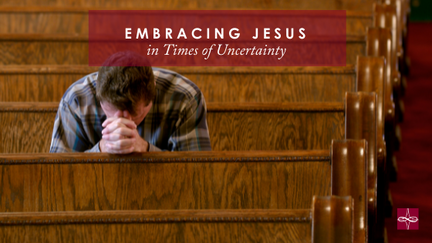

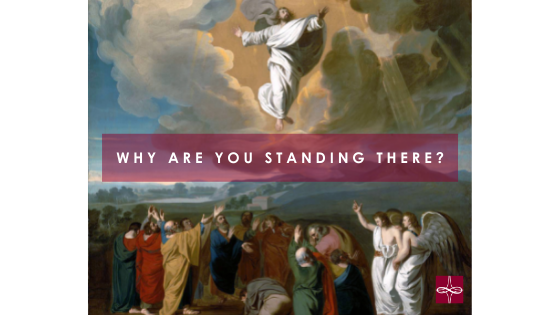

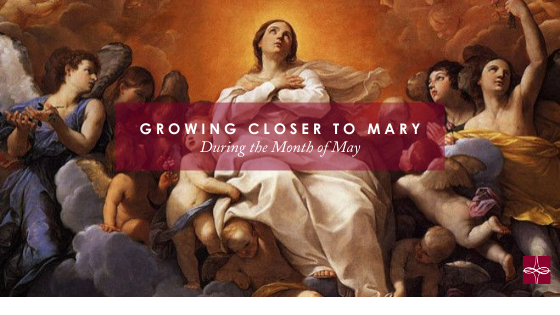

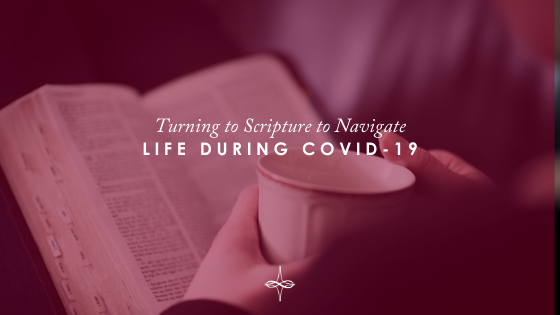

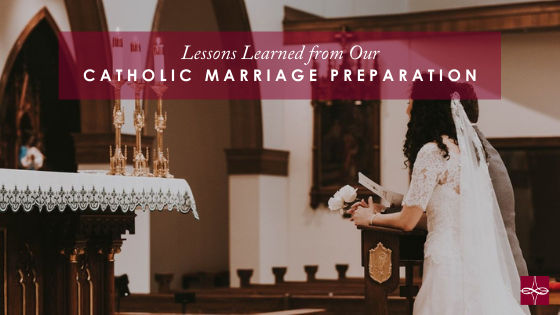

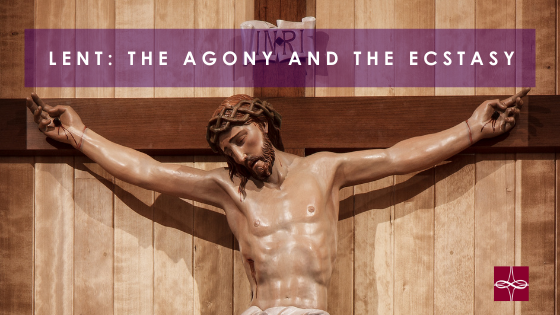

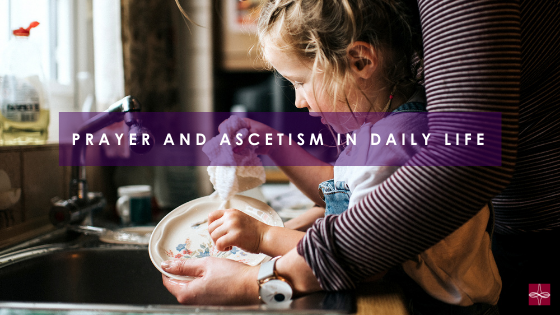

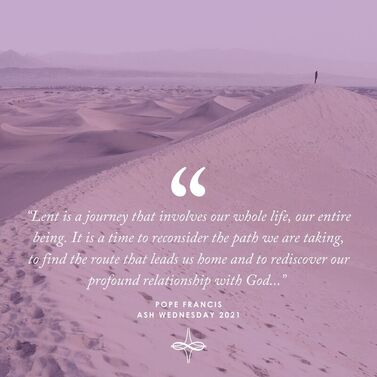
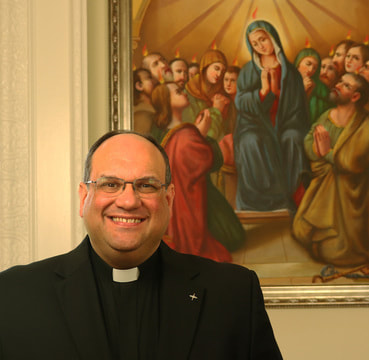
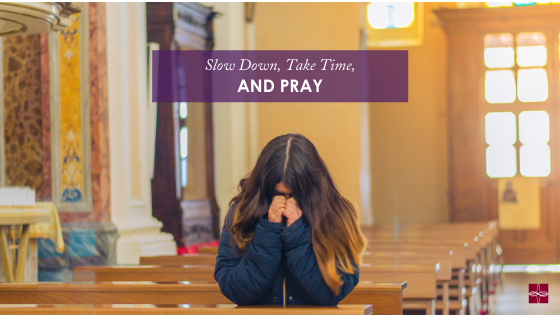

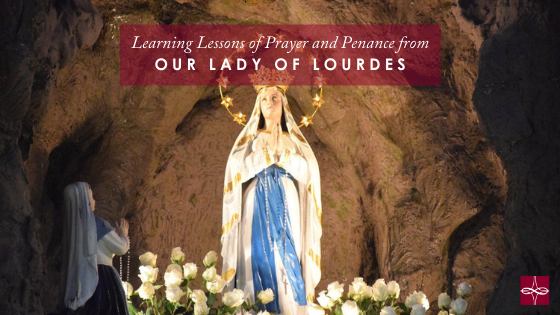

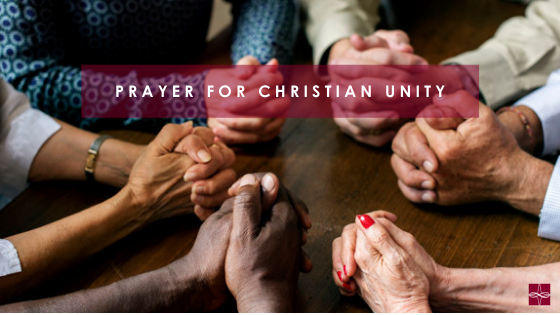




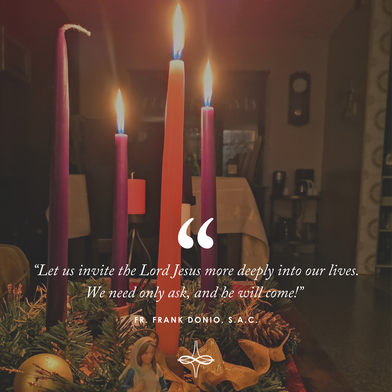
 RSS Feed
RSS Feed